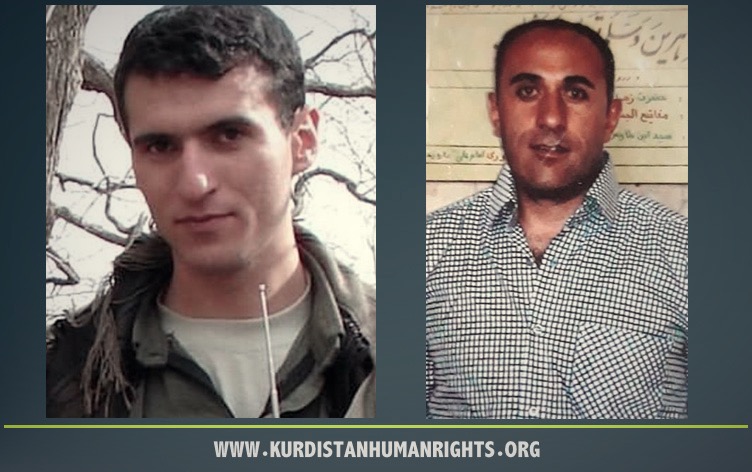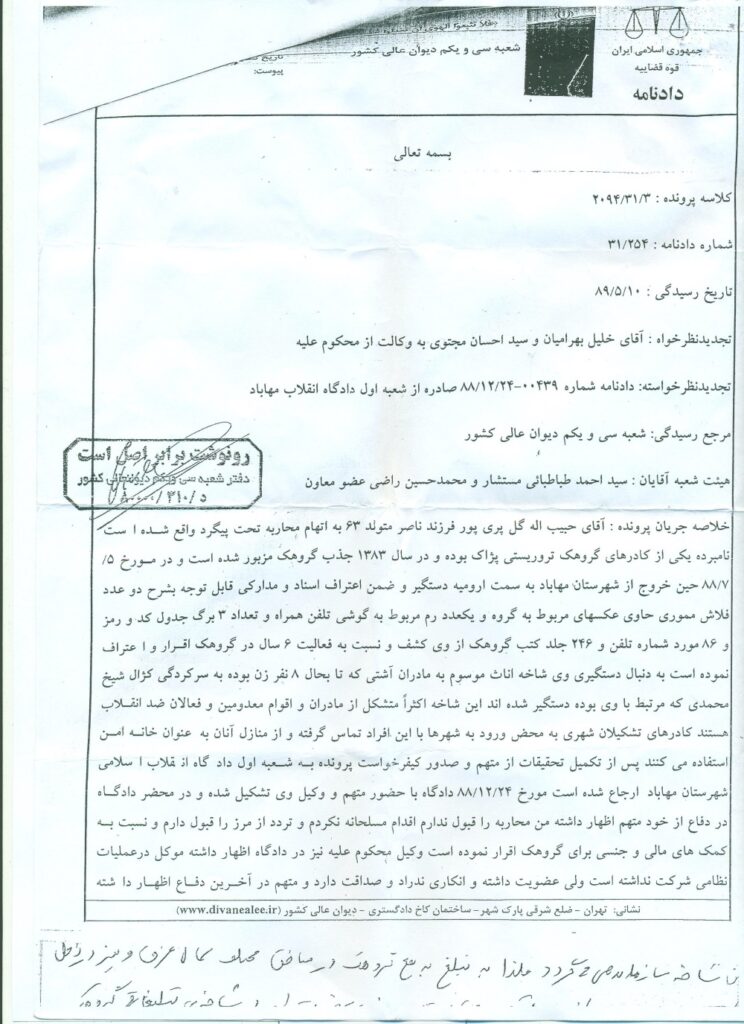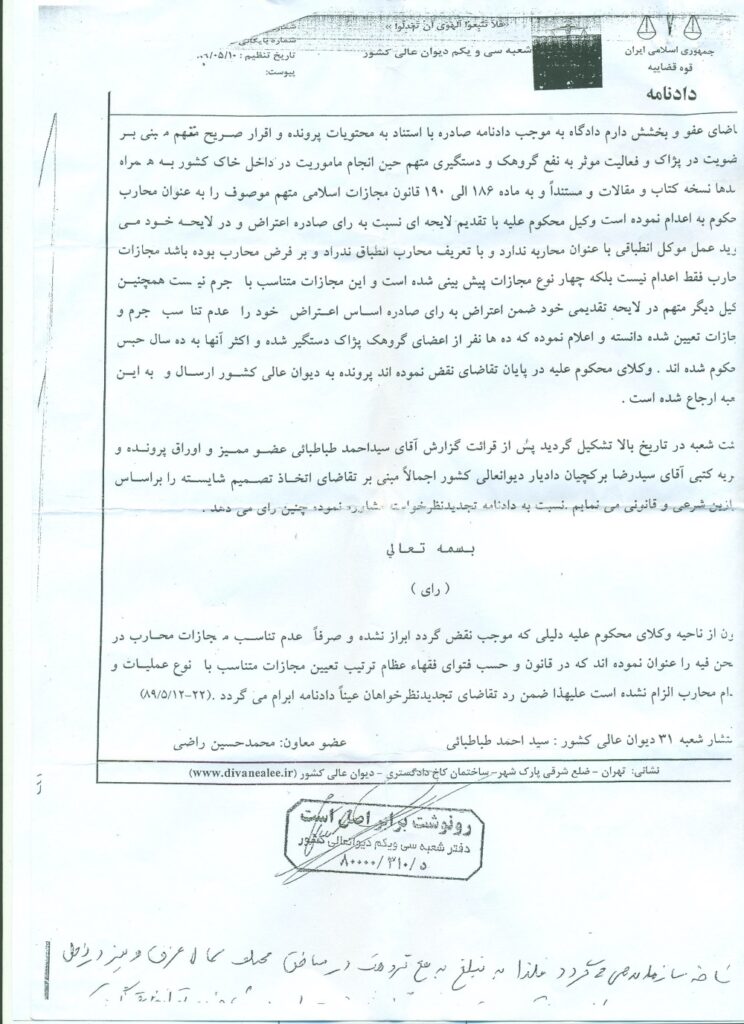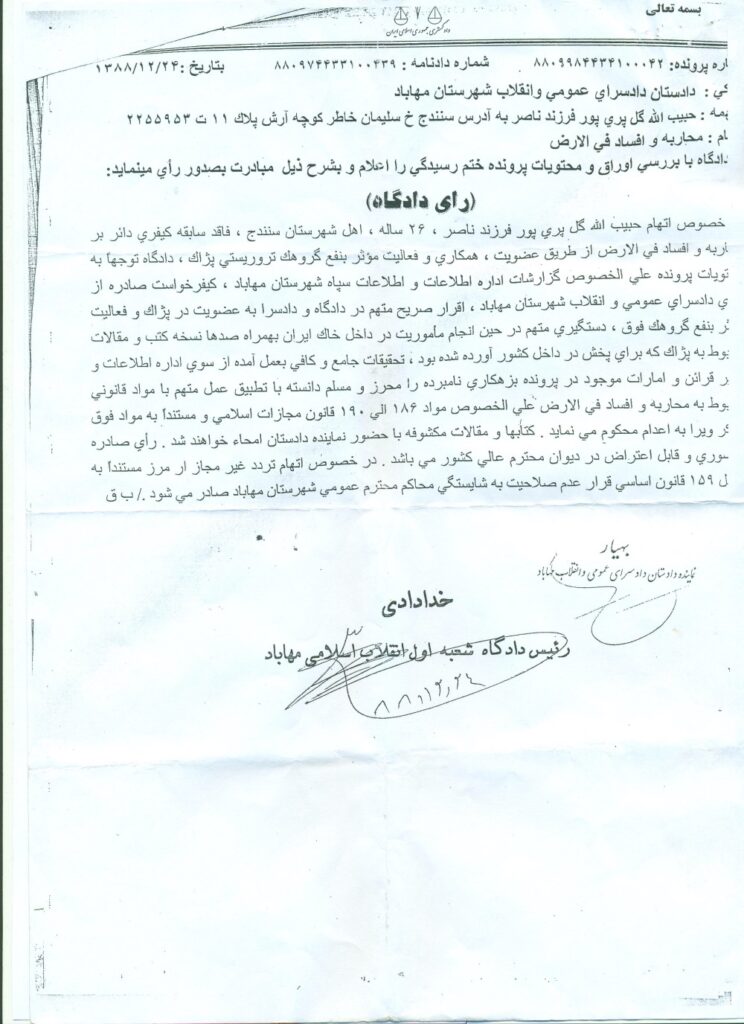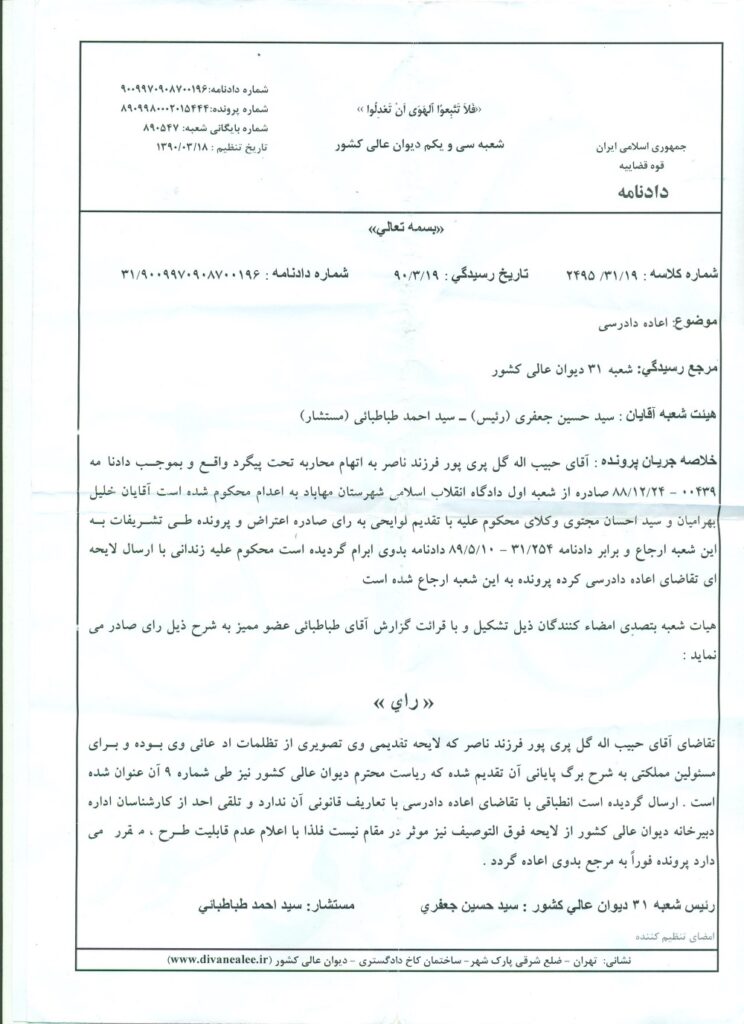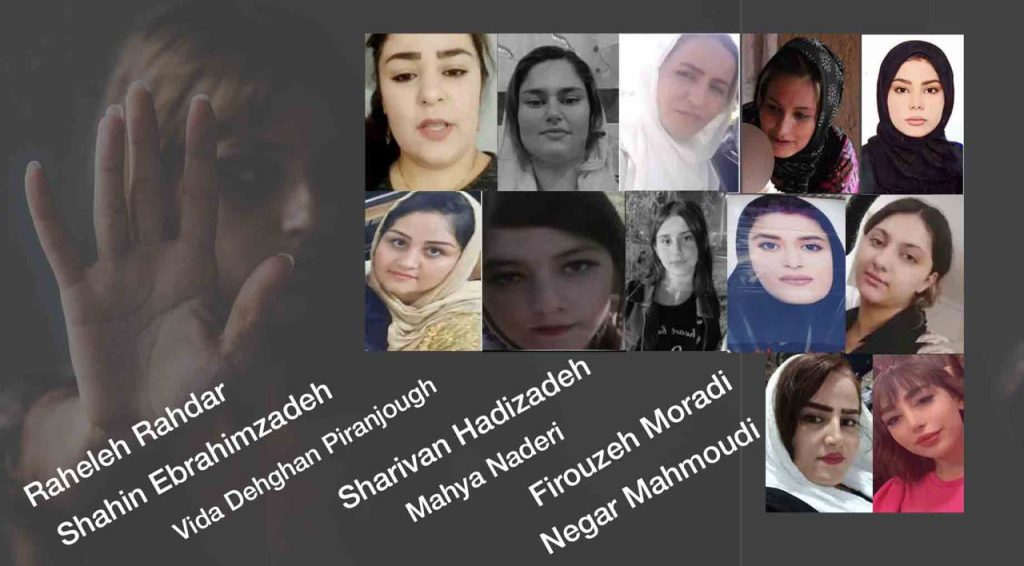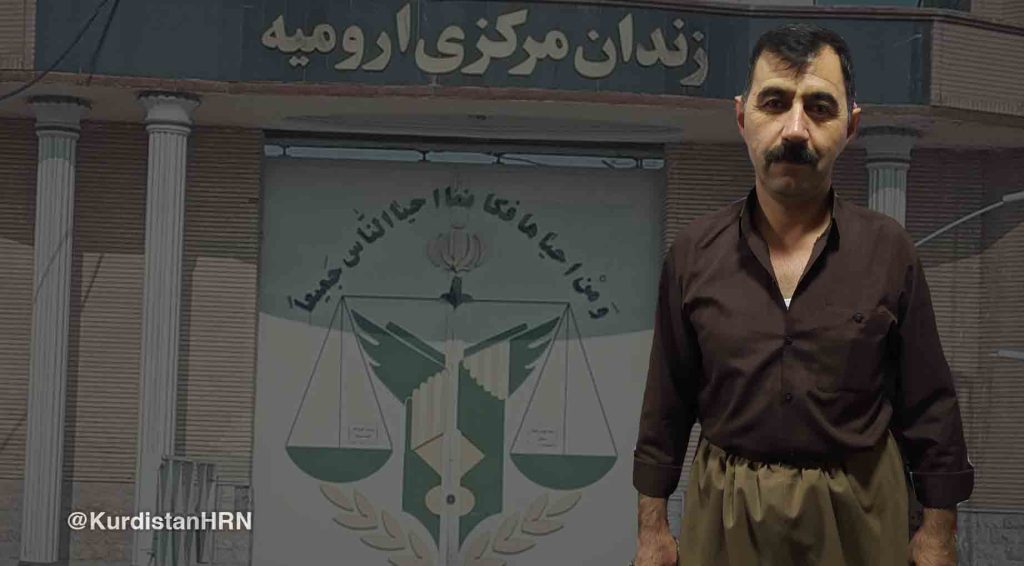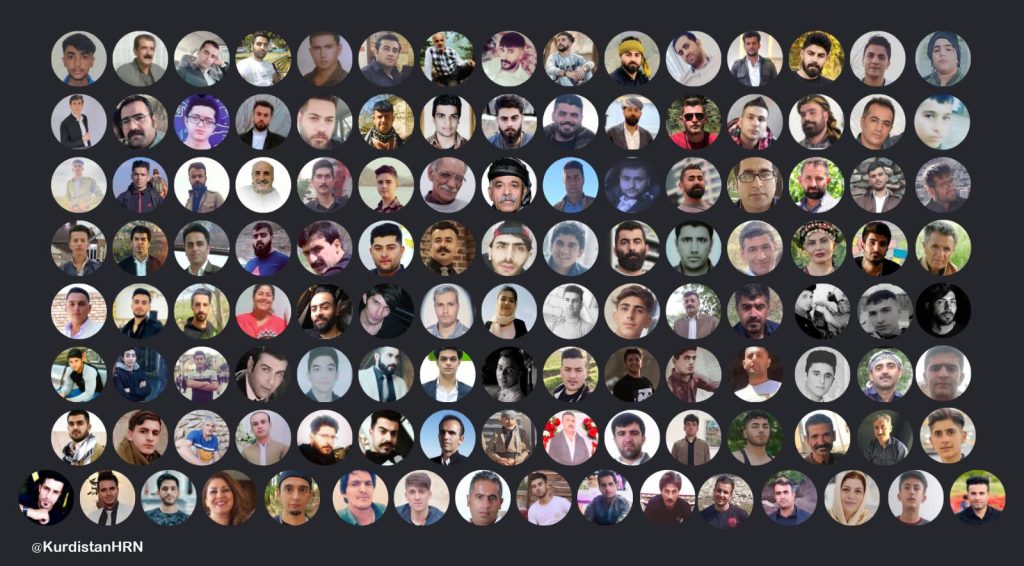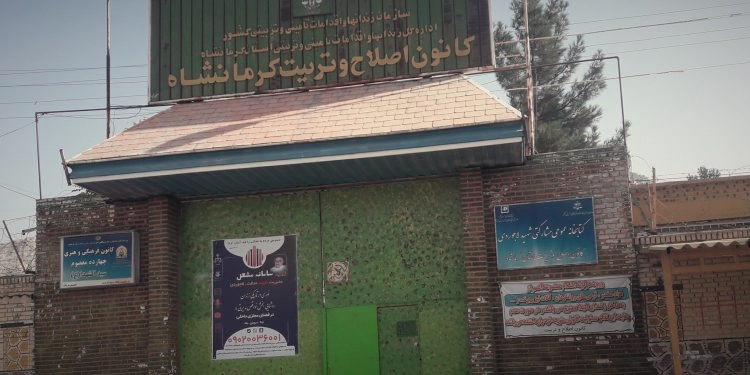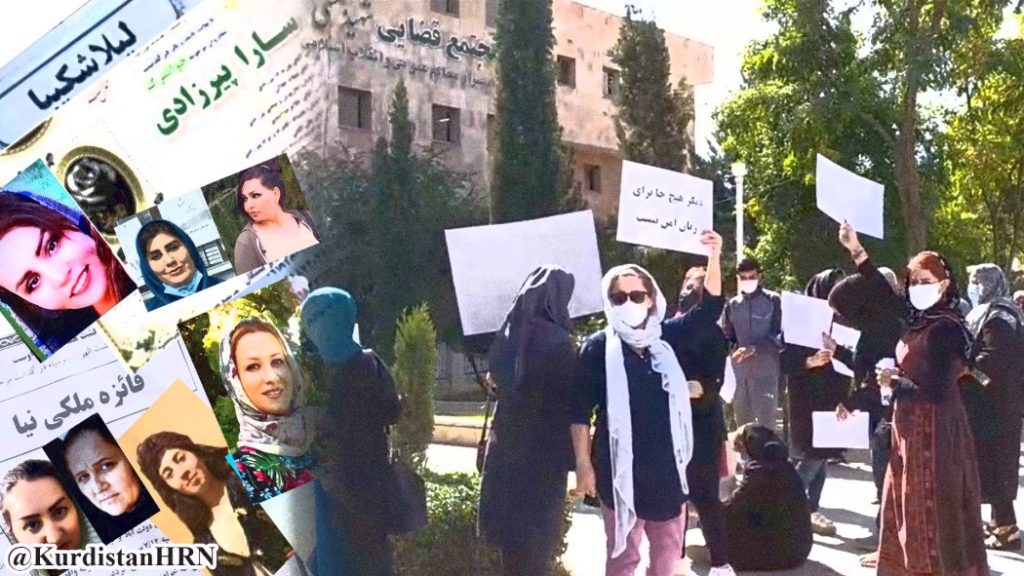On 25 October 2013, Habibollah Golparipour in Orumiyeh Central Prison and Reza Mamadi in Salmas Prison were suddenly transferred to solitary confinement without the prior notice of their lawyers and families. The following morning, the two Kurdish political prisoners were executed.
Security and judicial officials refused to hand over the bodies to the families and did not even specify their burial locations.
Mamadi’s family managed to identify his burial place in Salmas cemetery that evening, after a thorough search, and secretly excavated his body and buried him in his home village of Derik in Salmas.
But Golparipour’s family’s attempt in this regard remained unsuccessful.
Habibollah Golparipour
A former political prisoner who was Golparipour cellmate while held in Orumiyeh Central Prison in West Azerbaijan province spoke to the Kurdistan Human Rights Network (KHRN) on Golparipour’s transfer to solitary confinement and the execution of his death sentence.
“On Friday, 25 October 2013, the prison authorities summoned Habibollah Golparipour, who was being held with us in ward 12, the ward for political prisoners, and transferred him to a solitary cell. After other political prisoners became suspicious of the sudden transfer, prison officials announced that the political prisoner would be transferred to another prison. That’s why they took his personal belongings, too.”
The former political prisoner continued: “At 1800 [local time], at the same time as the door was closed and the prison telephones were cut off, we became concerned about the Habibollah’s possible execution and protested. We asked the prison officials to allow Yousef Kakamami to meet with Habibollah on behalf of us, the political prisoners. But the prison authorities opposed our request.”
According to his statements, at 2100 local time on the same day, a prison officer went to Ward 12 and, without giving any specific reason, transferred another Kurdish political prisoner sentenced to death, Ali Ahmad Soleiman, to a quarantine cell.
After being transferred to quarantine, Soleiman could talk to Golparipour from a nearby cell quickly.
“In this short conversation, Habibollah told him that he was going to be executed in the hours that followed and asked him to tell other political prisoners not to worry about him because he would welcome the execution with joy and without fear.”
The former political prisoner added: “After half an hour, Ali Ahmad Soleiman was returned to the ward, and at 2330 [local time] that night, two criminals of ordinary crimes, named Yadollah and Qodratollah, who were transferred to solitary confinement for fighting in prison, said that Habibollah Golparipour left the cell with the prison guards and went to the place of execution while singing the anthem ‘Ey Raqib’ [known as the Kurdish national anthem]”.
The Intelligence Organisation of the Islamic Revolutionary Guard Corps (IRGC) arrested Golparipour, born in 1984 in Sanandaj, Kurdistan province, at the exit of Mahabad, West Azerbaijan province.
The Intelligence Organisation of the IRGC and Ministry of Intelligence interrogated and severely tortured Golparipour for several months in their detention centres in Mahabad, Orumiyeh and Sanandaj.
On 15 March 2010, Branch 1 of the Islamic Revolutionary Court of Mahabad – presided over by Judge Khodadadi – held his trial in just a few minutes.
The court sentenced the political prisoner to death for “enmity against God” (Moharebeh) through “membership in the Kurdistan Free Life Party (PJAK)”.
After Golparipour appealed against the verdict, the case was referred to the country’s Supreme Court. Branch 31 of the Supreme Court upheld the ruling.
In March 2012, the Kurdish political prisoner published an open letter regarding the mental and physical torture inflicted on him during his detention:
“Despite the long detentions and the physical and mental torture that led me to the point of death, regarding which I have sent complaints to various government agencies, in this country, our voices do not pass through our prison cells, let alone having a listener.”
On 15 March 2012, Golparipour was transferred to Semnan Central Prison for 14 months for unknown reasons and was returned to Orumiyeh Central Prison on 13 May 2013.
Reza Mamadi
Reza Mamadi, the other Kurdish political prisoner who was executed at the same time in Salmas Prison, was 34 years old, married, and was a resident of the village of Derik in Salmas, West Azerbaijan province.
Security forces arrested Mamadi in September 2009.
He was severely tortured physically and mentally for a month in the detention centre of the intelligence ministry in Salmas.
After six months in detention, the Islamic Revolutionary Court in Khoy, West Azerbaijan province, sentenced him to death.
The court charged him with “enmity against God” (moharebeh) through “membership in the Kurdistan Free Life Party (PJAK)”.
After the Supreme Court upheld the sentence, his cellmates in Salmas Prison informed his family of his execution on the morning of 25 October 2013.
A relative of the political prisoner spoke to the KHRN about discovering his burial site and the secret transfer of his body to his home village.
“After the secret execution of Reza Mamadi, his family found out through their follow-ups that he was buried in Salmas Cemetery. The family and relatives managed to find his burial place that day and secretly removed his body from the grave at night and transferred it to his birthplace in the village of Derik for burial.”
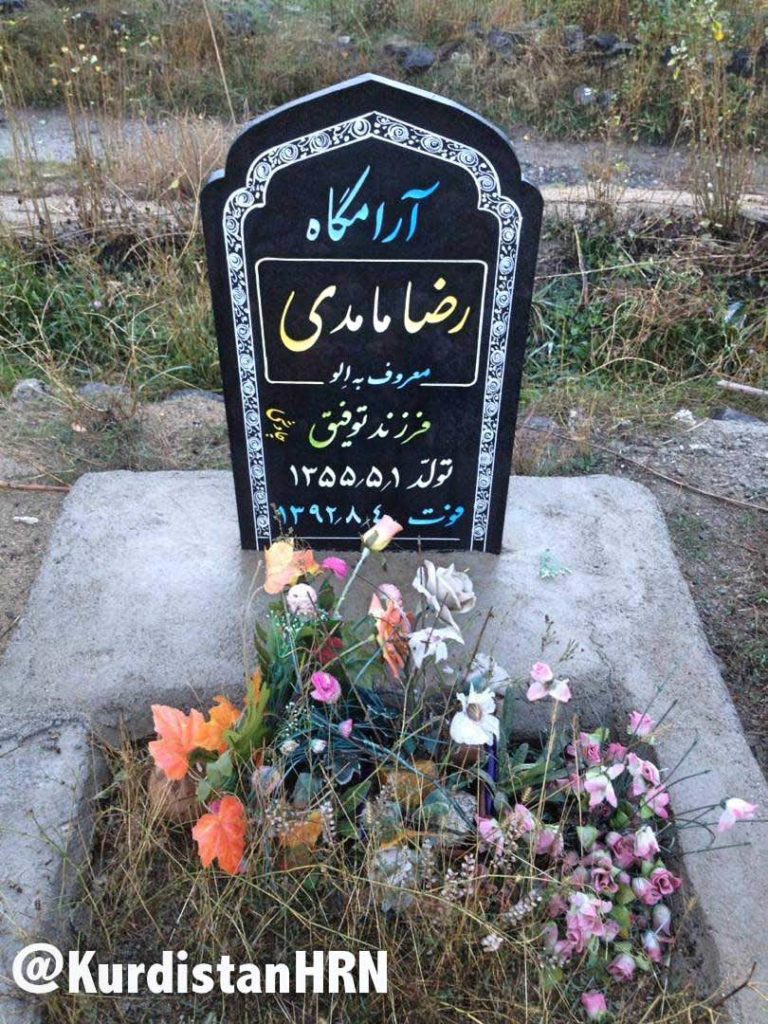
Reza Mamadi’s grave in Derik village of Salmas 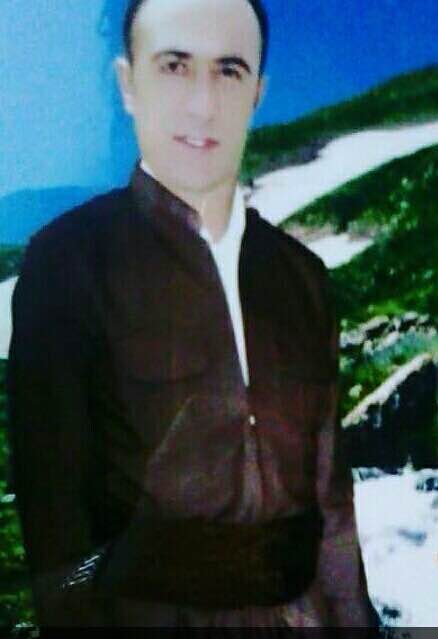
Reza Mamadi

